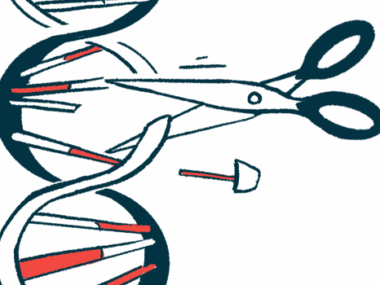Investigational Therapy May Alleviate Sleep Disorder, Cognitive Decline in Children with PWS
Written by |

Pitolisant, an investigational anti-sleepiness therapy in the U.S., may help reduce daytime sleepiness and improve cognitive function in children with Prader-Willi syndrome (PWS), a case series suggests.
The study, “Cognitive Improvements in Children with Prader-Willi Syndrome Following Pitolisant Treatment — Patient Reports,” was published in the Journal of Pediatric Pharmacology and Therapeutics.
A 2014 survey reported that 65% of PWS patients experience sleep problems that include apnea and daytime sleepiness.
In 2016, pitolisant (sold under the brand name Wakix), developed by Bioprojet Pharma, was approved by the European Medicines Agency (EMA) for the treatment of narcolepsy accompanied or not by cataplexy, a sudden and uncontrollable muscle weakness.
Pitolisant promotes the activity of a type of neurons, called histaminergic neurons, that improve wakefulness and help fight uncontrollable sleepiness, or narcolepsy. Pitolisant is an investigational therapy in the U.S., and is not approved by the U.S. Food and Drug Administration (FDA).
The first U.S. PWS patient to try pitolisant was a 14-year-old with a genetic diagnosis of PWS who imported pitolisant from Europe, after FDA approval, to treat his symptoms of narcolepsy and cataplexy. Pitolisant not only improved narcolepsy symptoms, but also dramatically improved his cognitive function.
Inspired by the success of the treatment, other U.S. families requested personal importation of pitolisant.
In this case series, researchers reported on three PWS children with narcolepsy complaints who began therapy with pitolisant.
One was a 12-year-old boy; the other two were girls ages 10 and 15. The children’s parents agreed to report the treatment experience in the TREND community, an online platform that aims to gather patient experience available to the FDA and medical community.
Treatment outcomes were assessed by a short questionnaire, conducted every week, with the parents about the frequency and intensity of certain PWS symptoms.
Pitolisant treatment, administered in the morning, began with a low dose of 4.5 milligrams a day, gradually increasing in the three patients. In the boy and the 10-year-old girl, the dose increased to 27 mg/day by 15 and 16 months, respectively, whereas the older girl reached 31.5 mg after 14 months of treatment.
Overall, children seemed to sleep longer during the night, and were less sleepy and more active during the day.
Moreover, the treatment improved cognition, as shown by increased processing speed and improved mental clarity in all three PWS children. The teachers of the older girl said she had improved the ability to articulate thoughts, and had more mental flexibility.
Two of the children experienced headaches during the first two days of treatment with pitolisant, or after each dose increase. However, this side effect did not affect daily activities, and did not require additional medication.
Overall, the findings suggest that “the benefits of pitolisant treatment for individuals with PWS appear to extend beyond the expected improvements in excessive daytime sleepiness,” researchers stated.
“Pitolisant may represent a novel therapeutic option that might relieve substantial PWS disease burden, including cognitive disability, excessive daytime sleepiness, and poor-quality nighttime sleep,” the team added.
As pitolisant is currently undergoing revision by the FDA for the treatment of narcolepsy with or without cataplexy, the researchers hope that the findings provide evidence supporting pitolisant’s benefits, but most importantly can help “design of a clinical trial to determine if pitolisant can improve narcolepsy, cataplexy, cognition, and behavior in patients with PWS,” the researchers said.





